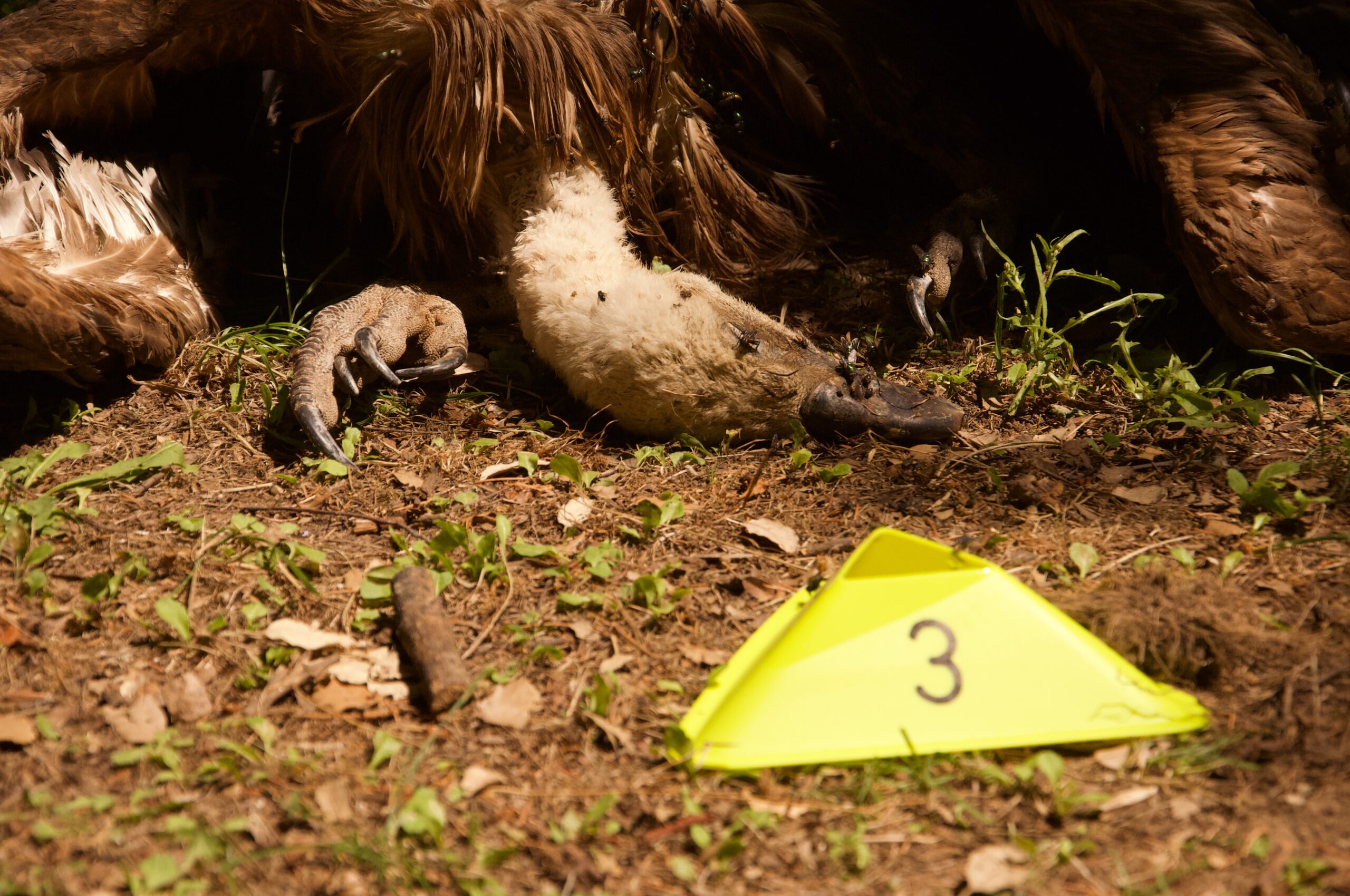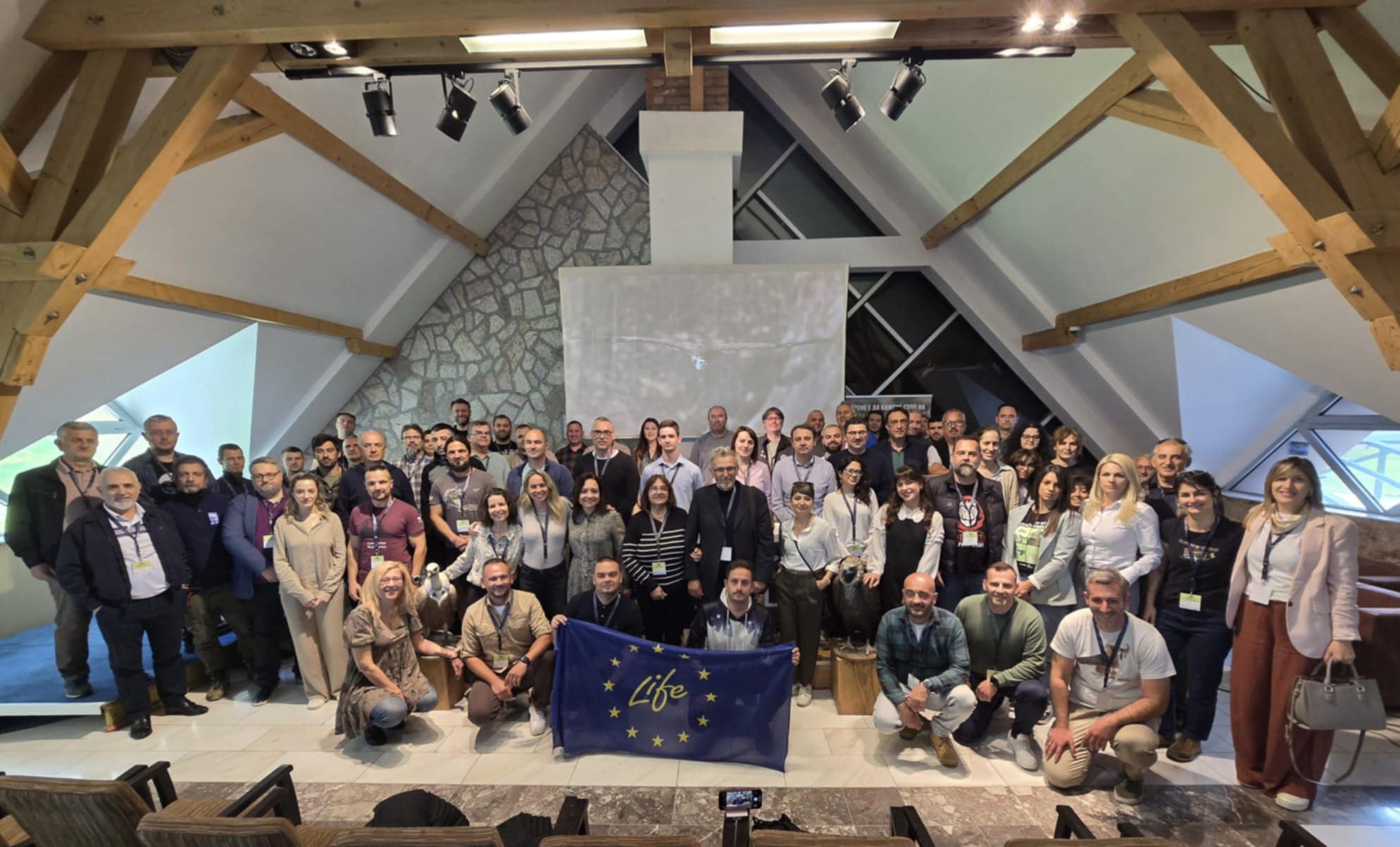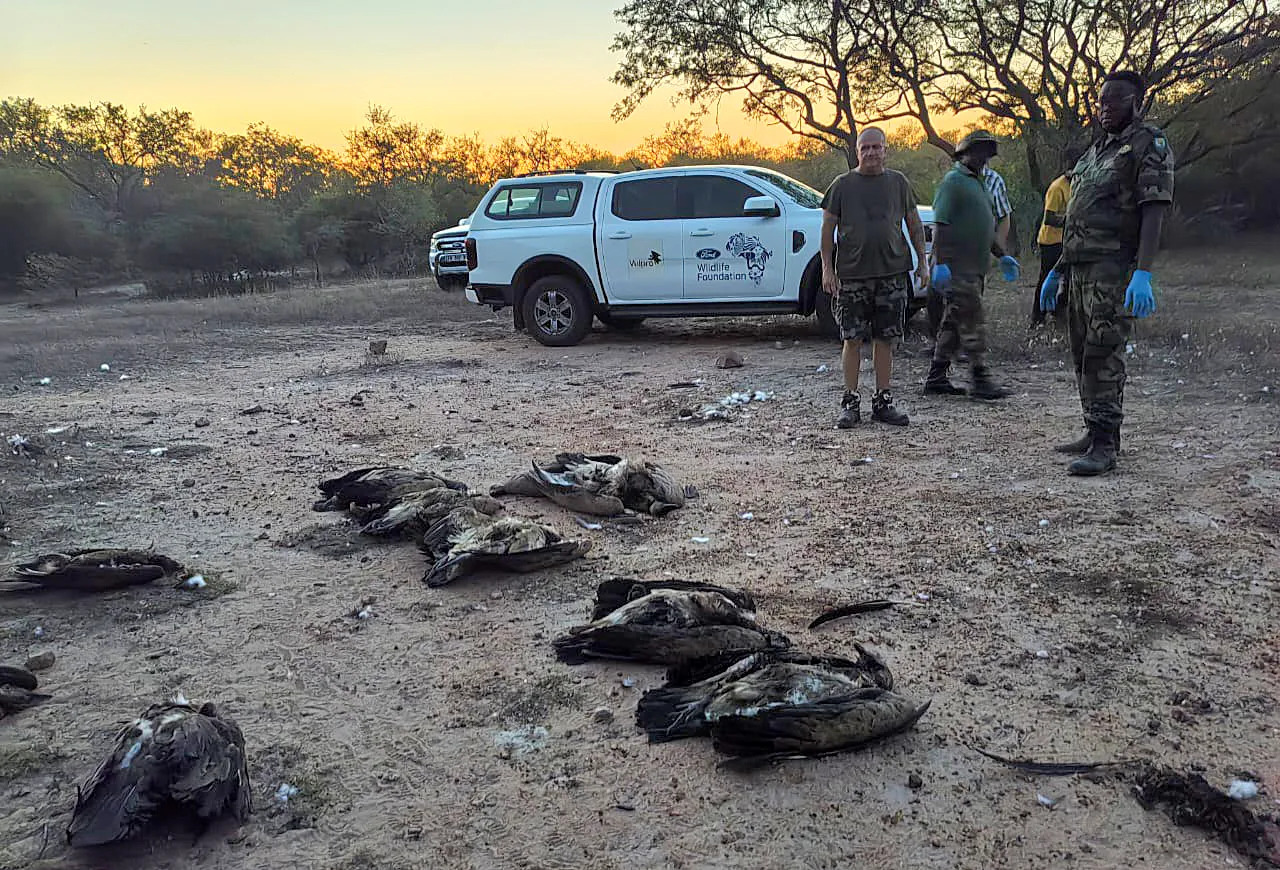
The fact that poisoning represents the most severe threat for wildlife in the Balkans, especially vultures and other scavenging species was most recently demonstrated in Serbia. Thanks to the rapid response of the Wildlife Conservation Team of the Provincial Institute for Nature Conservation, near the protected area “Bačkotopolske doline”, a potential massive poisoning of wild animals was prevented by removing the poisoned baits that were set up at the site there in late October. The action was carried out in cooperation with the police, the Municipal Environmental Inspection of Bačka Topola, the Arhus Ecological Society, Bird Protection and Study Society of Serbia/BirdLife Serbia and the Provincial Environmental Inspection.
Swift action prevents mass poisoning
After receiving the alert from a concerned citizen, a thorough search of the terrain found two poisoned Common Buzzards and one Magpie, as well as about five kilograms of meat in total, laced with poison and cut up in baits and spread out at a total of seven locations within two agricultural parcels with grain in the area. The dead animals and the baits were collected and transferred over to the Veterinary Institute of Novi Sad to determine the final cause of death and the substances involved.
The threat of poisoning in the Balkans
Poison is the single most important threat to vultures in the Balkans and has contributed to the regional extinction or severe depletion of all the species in the region. The vulture populations of the Balkan Peninsula and surrounding regions reached a critical conservation status at the end of the 20th and beginning of the 21st century mainly because of the use of poison baits. Based on the information gathered within the Balkan Anti-Poisoning Project (BAPP), over the course of the last 50 years, this practice has led to severe population declines of all vulture species and has brought the majority of them to the brink of regional extinction (Bearded Vulture, Cinereous Vulture). The most common type of wildlife poisoning present in the Balkan region is the intentional placement of poison baits for the purpose of killing wild, feral or in some cases domestic animals according to the Balkan Vultures Poison Study.
Although the motive behind most of the vulture poisoning incidents remains undiscovered so far, it can be assumed based on knowledge of previous poisoning incidents in that region that predators (jackals and foxes) were most likely targeted.
Coordinated efforts of responsible institutions and fast response is crucial when dealing with poisoning incidents, which is precisely what we here at the VCF are supporting within the implementation of the BAPP project in the Balkan region and our partners in Serbia, the Bird Protection and Study Society of Serbia, which are also involved with the Provincial Institute for Nature Conservation on anti-poison work on the PannonEagle Life Project.
Balkan Anti-Poisoning Project

The Balkan Anti-Poisoning Project is a cross-border initiative bringing together wildlife conservation organisations, governmental agencies and other stakeholder such as; hunting associations, farmers and scientists, in six Balkan countries to tackle illegal wildlife poisoning.
Funded by the Mava Foundation we aim to secure real and continued engagement of the relevant national governmental authorities in the Balkan region against illegal wildlife poisoning and increase their capacity to counteract it and working together to take positive steps to protect vultures.
The Balkan Anti-Poisoning Project is a partnership between us here at the Vulture Conservation Foundation and the Albanian Ornithological Society-AOS, Protection and Preservation of Natural Environment in Albania-PPNEA, Ornithological Society “Naše ptice”,Association BIOM, Hellenic Ornithological Society-HOS, Macedonian Ecological Society-MES.
The Balkan Anti-Poisoning Project also contributes directly into the implementation of the Vulture Multi-Species Action Plan by carrying out anti-poisoning actions in Albania, Bosnia and Herzegovina, Croatia, Greece, North Macedonia and Serbia, and is building on our work for the last decade in the Balkans thorugh the Balkan Vulture Action Plan.









